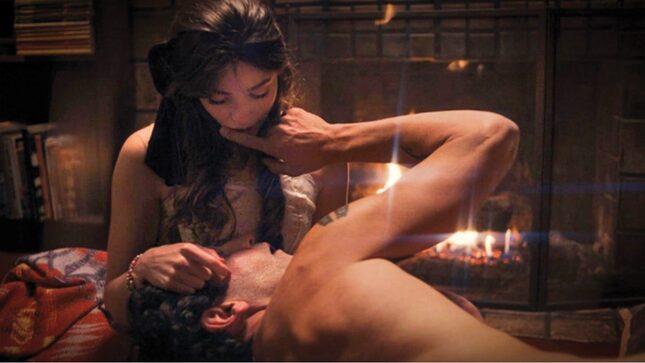Lena Dunham’s ‘Sharp Stick’ Paints a Sloppy Portrait of One Woman’s Sexual Exploration
Even my celeb crush Jon Bernthal couldn't save the embattled Girls director's latest endeavor.
EntertainmentMovies

If there’s one thing audiences can trust Lena Dunham to do when approaching every artistic venture, it’s to make it about herself. And unlike the rest of the internet, I refuse to hold that habit against her for the sole reason that it’s often profoundly obnoxious. If more of today’s creators suffered from Dunham’s second affliction—an inability to simply say less—they’d likely admit that more than one project in their portfolio entailed a bit of projection, too. That said, Dunham’s latest venture, Sharp Stick, seems to come straight from the pages of her diary, and unfortunately, the tale of one young woman’s thottification could’ve been infinitely more effective had it…well, come from anywhere else.
The film opens with its elfin protagonist, 26-year-old volunteer for disabled children Sarah Jo (Kristine Froseth), filming her adopted sister, Treina (Taylour Paige), performing a choreographed dance for her disciples on TikTok in their mother, Marilyn’s (Jennifer Jason Leigh) living room. The contrast between the dutiful, innocent—bordering on infantilized—Sarah Jo and the brazen, bohemian Treina and Marilyn is apparent within seconds; but it’s made even more painstakingly clear when the trio take their respective places at the breakfast table, and the latter two smoke a joint and mouth the lyrics to “My Neck, My Back,” while Sarah Jo meekly observes over a dollop of plain yogurt. Because nothing says delayed sexual exploration louder than doe-eyed blank stares, pinafores, and abstaining from cannabis, audiences soon discover that Sarah Jo is a virgin. Meanwhile, Treina, the gyrating influencer, is “imprisoned” by dick that will result only in disappointment, and later, an abortion.
Apart from the blatant racial implications, there’s another story within these portrayals of 20-somethings. At either end of the sexuality spectrum awaits a punishment for women: Achieve liberation and suffer heartbreak, and worse, or never experience the joys of sex and endure years of being labeled an oddity.
Early scenes show the daughters candidly discussing sex with their mother. At one point, Leigh’s character asks her daughters what you call a penis that’s wider than it is long. “Chode!” they gleefully exclaim, as if it’s a late-night episode of Sesame Street. And yet, Dunham asks us to suspend disbelief that Sarah Jo—a millennial working-class woman in Los Angeles with unfettered access to the internet and social media, not to mention undoubtable exposure to pop culture—has no knowledge or curiosity about sex, until one day she suddenly decides that her married man-child boss, Josh (Jon Bernthal), should be the one to relieve her of her virtue.
-

-

-

-

-

-

-

-

-

-

-

-

-

-

-

-

-

-

-

-

-

-

-

-

-

-

-

-

-

-

-

-

-

-

-

-

-

-

-

-








































